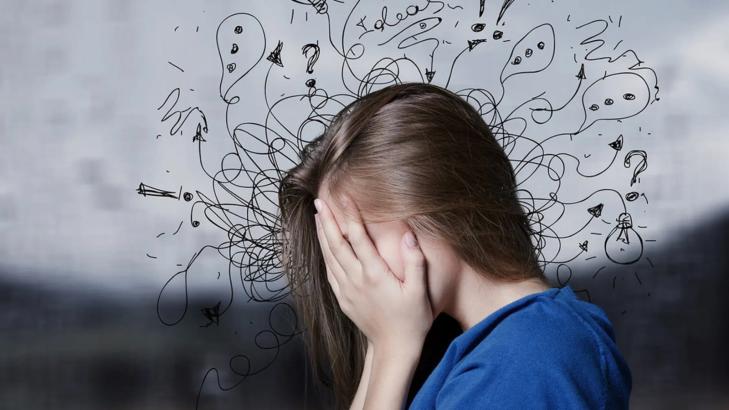The human soul continues to be the most intricate and multifaceted entity in all of science, even with all of its amazing advancements and discoveries.
This is due to its great ambiguity, which means that if scholars, thinkers, and philosophers believe they have discovered its truth and its secrets, they have only managed to piece together a very basic understanding of it. Since the soul is an essential component of every human being, we must discuss the problems and illnesses that affect it and cause its owner to become imbalanced.
Modern psychology depends on ancient Greek and European origins. This made psychology a bridge to reach the stage of mature science and modern theories in our modern age that analyze the manifestations of human behavior and inside the human psyche. In this article, we will learn about the concept of mental illnesses and their causes, classifications, and methods of treatment. So follow along with us.
What are mental illnesses?
Mental illnesses or disorders are illnesses or conditions that affect the mindset, feelings, behavior, relationships with others, or environment in which we live. They have become very common among members of society now. Most people have one of these patients around them, either in the neighborhood or within their families, or they may know someone who has symptoms related to one of these illnesses.
According to a study by the World Health Organization, nearly one billion people around the world suffer from mental disorders.
Symptoms of mental illness vary from mild to severe, and their effects vary from one person to another. Mental illness makes it difficult for the patient to deal with the everyday life that they are used to dealing with normally and spontaneously.
Causes of mental illness
The human soul is very deep and sensitive as well. It can be affected by the smallest things that negatively affect the human psyche since childhood. These things accumulate over time, forming many mental illnesses, and daily events that one goes through since childhood may form traumas that, with time, become psychological illnesses that must be treated.
While many people occasionally suffer a variety of mental health issues, anxiety that is connected to mental health only qualifies as a mental illness when its symptoms are distressing and interfere with an individual's capacity to perform.
Severe emotional or physical abuse, the death of a parent early in life, divorce, family problems, job loss, school stress, or drug addiction may trigger or elevate certain mental disorders in some people, but it is worth noting that not everyone who goes through these bumps in life suffers from a mental illness. It is normal to feel some sadness, anger, and several other feelings when you have a big problem in life, but mental illness is completely different from those normal feelings.

But when one of those scenarios arises, it is important to consider the person's age as well as their capacity to handle these emotions. A number of things, such as sharing feelings, family or friend support, and maturity, enable older individuals to cope with such scenarios. They are therefore better equipped to adjust to the experiences they have had.
Children and adolescents also suffer, and according to the World Health Organization, one out of every five children and adolescents may suffer from a mental disorder, and organic diseases in adolescents are often associated with psychological problems and vice versa.
Depression is one of the main causes of organic disease. It is followed by diseases of the digestive system, inflammation in the joints, or skin diseases, all resulting from anxiety and stress.
Exposure to permanent violence in childhood causes a permanent defect in the nerve fibers in the brain, which are formed in the first and second decades of a child's life. This imbalance may lead them to commit suicide in the future.
Those who have relatives with mental illnesses are more likely to experience mental disorders themselves, and some genes may make mental illness more likely to occur. A bleak, routine daily lifestyle may also contribute to it.
Environmental factors before birth—environmental stressors, inflammation, exposure to toxins, or drinking alcohol and drugs during pregnancy—can sometimes be linked to mental illness.
Symptoms of mental illness
Symptoms and signs related to mental illness vary according to the type of disorder, causes, and several other factors. They affect daily feelings, thoughts, and behaviors. Among these symptoms are:
- Feeling of constant sadness or depression.
- Poor ability to focus and confused thinking.
- Excessive guilt, intense fears, or anxiety.
- Severe mood swings.
- Avoiding friends and inaction.
- Sleep issues, extreme fatigue, and low energy.
- Detachment from reality: delusions or hallucinations.
- The inability to face daily problems or pressures.
- Difficulty in comprehension and dealing with situations and people.
- Disorders due to alcohol or drugs.
- Significant changes in eating habits.
- Extreme anger, hostility, and violence.
- A weakened immune system that makes it difficult for the body to fight against infections.
- Problems at work or in the school environment.
- Family problems.
- Suicidal thoughts.
Sometimes symptoms may appear as physical problems, such as pain in the stomach, backache, headache, or any other pain that you do not find a reason for.
Classification of Mental Illnesses
There are multiple and complex divisions of mental disorders distributed between illnesses and disorders. Chronic mental depression is classified within the list of illnesses. Anxiety that reaches the point of negatively affecting a person’s behavior and thinking is classified as a mental disorder that can be treated. Mental disorders appear in the form of an intense fear and phobia of certain things called “phobias," general anxiety, social anxiety, unexplained panic, obsessive-compulsive disorder, or post-traumatic stress disorder.
Emotional distress, such as "emotions and moods," can become disordered and can come in the form of severe and persistent unusual sadness, melancholy, or despair, known as "severe depression" or "clinical depression."
Additionally, there is bipolar disorder, sometimes referred to as "manic depression," in which a patient has intense mood swings or anxious episodes along with frequent cognitive impairment and unusual speech patterns. Manic states are what these occurrences are categorized as.
Sometimes the soul suffers from psychotic disorders in the models of beliefs and perception, and disorders of this type are classified as "schizophrenia" and delusional disorder. "Schizoaffective disorder" is also included in this framework.
In psychiatric classifications, there are also paranoid personality disorder, lonely personality disorder, schizotypal personality disorder, antisocial personality disorder, histrionic personality disorder, narcissistic personality disorder, and fear-related disorders such as avoidant personality and dependent personality.
.jpg_407ef194dd8af21_large.jpg)
Psychological disorders may extend to eating habits. This manifests in the person’s abnormal interest, which reaches the point of obsession with things related to food and weight. These disorders include anorexia nervosa and bulimia nervosa.
The list is long and also includes sleep disorders and disorders of self-identity, memory, and general awareness because sufferers are not in harmony with themselves and their environment. This condition is classified as "dissociative identity disorder."
Memory or cognitive disorders include memory loss and some types of dementia.
There are some disorders and illnesses that cause symptoms of organic diseases, but in fact they are of psychological origin and source, and they are classified as "psycho-somatic disorders," which mostly include materialization disorder and conversion disorder.
Among the diagnoses that are still the subject of controversy and disagreement among psychotherapists are dysthymia, sadistic personality disorder, passive-aggressive personality disorder, and premenstrual depressive disorder.
Treatment of mental illness
Mental illnesses do not heal on their own. If left untreated, the condition may worsen over time and lead to serious problems.
Most people with mental disorders do not prefer to turn to specialists for treatment for fear of being called mentally ill or insane, which worsens their condition.
The effects of mental illness can be temporary or long-term, and a person can have more than one disorder at the same time. A person may have depression and a substance abuse disorder, for example.
If someone we know exhibits symptoms of mental illness, we need to be honest with them about our concerns and work to persuade them to see a psychiatrist. While we cannot force someone to see a doctor, we can offer them psychological support and encouragement, as well as inform them of the seriousness of their condition and the risks to society and themselves. We can also go with them on their first appointment.
“Mental health has been neglected for far too long, but it matters to all of us and it is important that more be done,” said United Nations Secretary-General Antonio Guterres on the occasion of World Mental Health Day on October 10.
He called for increased investment in services, adding, “We must not allow stigma to prevent people from seeking the help they need.” Guterres emphasized this with: “There is no health without mental health.”
In conclusion
This article has taught us about mental diseases in general and has covered a variety of topics, including causes, symptoms, classifications, and treatments. We hope the intended benefit of this post will be delivered.






Add comment